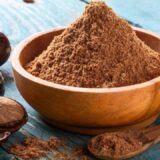The Golden Sex Rules of Ayurveda: Top Tips
Everyone wants a happy and healthy sex life. Ayurveda, an ancient healing system, says that this is possible. Within the ancient wisdom of Ayurveda, this aspiration is not merely a dream but a tangible goal. This holistic system of medicine posits that a fulfilling sexual experience is intrinsically linked to overall well-being and can be cultivated through adherence to specific guidelines.

Ayurvedic texts abound with principles designed to optimize sexual health and pleasure. These guidelines, often referred to as the “golden sex rules,” encompass a wide range of factors, from dietary choices and lifestyle habits to the timing and frequency of sexual activity.
By integrating these age-old wisdoms into modern life, individuals can unlock the potential for a more harmonious and enjoyable sexual experience.
While the journey towards optimal sexual well-being requires dedication and mindful practice, Ayurveda offers a roadmap to navigate this path with confidence and grace.
Ayurvedic Perspectives on Sexual Health
- Menstruation and Sex: Ayurveda discourages sexual intercourse during a woman’s menstrual period. Some modern health experts link sex during this time to conditions like endometriosis.
- Ideal Sexual Position: According to Ayurveda, a sexual position where the woman lies with her face upward is considered optimal.
- Weight and Sex: Ayurveda suggests that overweight or obese individuals should refrain from sexual activity.
- Hygiene and Sexual Health: Maintaining cleanliness of the genital area is crucial for preventing infections and related complications.
- Loyalty and Relationship: Ayurveda emphasizes the importance of loyalty and faithfulness in a relationship, considering infidelity a destructive act.
Ayurvedic Guidelines for Sexual Conduct
- Pregnancy and Postpartum: Ayurveda strongly advises against sexual intercourse during pregnancy and immediately postpartum. A recovery period of 2-3 months for normal deliveries and 5 months for C-sections is recommended for the woman’s health.
- Gentle Sexuality: Ayurveda promotes a gentle and loving approach to sex, condemning violence and aggression during sexual encounters.
- Natural Sexuality: According to Ayurveda, sexual pleasure should be derived from natural bodily functions and not through oral sex or other unconventional practices.
- Auspicious Timing: Ayurveda prescribes specific times to avoid sexual activity, such as during festivals, eclipses, and on full moon or new moon nights.
- Dietary Considerations: Sexual intercourse on an empty stomach or immediately after a heavy meal is discouraged as it can lead to digestive issues and imbalances in bodily energies.
Additional Ayurvedic Guidelines for Sexual Conduct
- Age and Consent: Ayurveda strictly prohibits sexual activity with minors or elderly individuals.
- Physical Comfort: Sexual intercourse should be mutually pleasurable and free from discomfort or pain for both partners.
- Health and Well-being: Ayurveda discourages sex when either partner is ill or physically or mentally unfit.
- Natural Partners: Bestiality is strongly condemned in Ayurvedic texts.
- Bodily Functions: Sexual activity should be avoided immediately before or after urination or defecation.
Ayurvedic Sexual Practices Based on Seasons
Ayurveda emphasizes a seasonal approach to sexual activity, aligning it with the body’s natural cycles and energy levels.
- Monsoon and Summer: These seasons are considered periods of lower bodily strength. Therefore, sexual activity is recommended to be limited to once every fifteen days.
- Spring and Autumn: With moderate bodily strength, sexual intercourse can be enjoyed once every three days during these seasons.
- Winter: This season is characterized by peak bodily energy, allowing for daily sexual activity.
It’s crucial to remember that these are general guidelines, and individual variations may exist.
Vajikarana Chikitsa: Ayurvedic Approach to Sexual Vitality
Vajikarana Chikitsa is a specialized branch of Ayurveda dedicated to enhancing sexual health, fertility, and overall vitality. In addition to lifestyle factors like exercise and diet, Ayurveda offers a rich repertoire of herbs to support sexual well-being.
Some of the most renowned herbs in Vajikarana therapy include:
- Shilajit: Known for its rejuvenating properties, Shilajit is believed to boost libido, increase stamina, and improve sperm quality.
- Ashwagandha: An adaptogen herb, Ashwagandha helps reduce stress, improve energy levels, and enhance sexual desire.
- Swarn Bhasma: A gold-based Ayurvedic preparation, Swarn Bhasma is considered a potent rejuvenator and aphrodisiac.
- Jaiphal (Nutmeg): This spice is often used in Ayurvedic formulations to enhance sexual pleasure and arousal.
- Kesar (Saffron): Known for its mood-enhancing properties, Kesar is also believed to boost libido and improve sexual performance.
Note: It’s important to note that while these herbs offer potential benefits, individual responses may vary. Consulting an Ayurvedic practitioner for personalized guidance is recommended before incorporating them into your regimen.
Aphrodisiacs Food used in Ayurveda
Ayurveda recognizes the profound connection between diet and sexual health. Certain foods are believed to enhance fertility, vitality, and libido.
Nourishment for Both Sexes
- Dairy: Milk and milk products are considered vital for male fertility and overall vitality.
- Legumes and Seeds: Lentils and sesame seeds are particularly beneficial for women’s reproductive health.
- Superfoods: Berries, goji berries, Indian gooseberry (amla), Ashwagandha, and ghee are considered rejuvenating for both men and women.
Specific Benefits for Women
- Hormonal Balance: Shatavari, sida cordifolia, and soybean are believed to support estrogen levels, which can boost libido and fertility.
Specific Benefits for Men
- Fertility Boost: Mucuna or velvet bean, sida cordifolia, Indian gooseberry, and goji berry are considered effective in enhancing male fertility.
It’s important to note that while these foods have been traditionally used to support sexual health, individual responses may vary. A balanced diet and overall well-being are essential for optimal sexual function.
Ayurvedic Diet for Sexual Health
Ayurveda emphasizes a holistic approach to well-being, and diet plays a crucial role in sexual health. Let’s explore some specific dietary recommendations:
1. For Enhancing Libido
- Sweet and Sour Flavors: Incorporate foods with sweet and sour tastes, as they are believed to stimulate libido.
- Warm Spices: Spices like cardamom, cinnamon, and ginger can enhance sexual desire and improve circulation.
- Aphrodisiac Foods: Certain foods, such as asparagus, oysters, and avocados, are considered natural aphrodisiacs in many cultures.
2. For Improving Sperm Quality
- Zinc-rich Foods: Foods like pumpkin seeds, oysters, and lentils are rich in zinc, essential for sperm health.
- Antioxidant-rich Foods: Berries, nuts, and dark chocolate provide antioxidants that protect sperm from damage.
3. For Hormonal Balance
- Phytohormones: Some plant-based foods contain compounds similar to human hormones. Flaxseeds and soy products are examples. However, consult with an Ayurvedic practitioner before making significant dietary changes.
General Dietary Guidelines
- Balanced Diet: Prioritize a diet rich in fruits, vegetables, whole grains, and lean proteins.
- Hydration: Stay hydrated by drinking plenty of water.
- Avoid Excessive Stimulants: Limit caffeine and alcohol consumption.
Remember: While diet can significantly impact sexual health, it’s essential to consider individual variations and consult with an Ayurvedic practitioner for personalized guidance.
Sex and Ayurvedic Body Clock
Ayurveda, the ancient Indian healing system, believes that our bodies operate on a cyclical rhythm influenced by three energies called Doshas: Vata, Pitta, and Kapha. These energies dominate different parts of the day.
- Vata (Air and Ether): Strongest in the early morning (2-6 AM) and late afternoon (2-6 PM).
- Pitta (Fire): Peaks around midday (10 AM-2 PM) and midnight (10 PM-2 AM).
- Kapha (Water and Earth): Most dominant in the late morning (6-10 AM) and early evening (6-10 PM).
Ayurveda suggests that sex during Pitta times (midday and midnight) can be draining on the body. Therefore, the ideal times for sexual activity are during Vata or Kapha periods, specifically:
- Early morning: Between 4 AM and 7 AM
- Early evening: Between 8 PM and 10 PM
By aligning sexual activity with these times, you can potentially enhance your experience and overall well-being.
Q&A on the Golden Sex Rules of Ayurveda
1. What is the Ayurvedic perspective on sex?
Ayurveda views sex as a natural and essential part of life, linked to overall well-being and longevity. However, it emphasizes moderation and timing for optimal benefits.
2. How does Ayurveda define a healthy sex life?
A healthy sex life in Ayurveda is characterized by balance, pleasure, and harmony. It involves physical, emotional, and spiritual satisfaction for both partners.
3. What are the basic principles of Ayurvedic sexuality?
The basic principles include timing, frequency, diet, hygiene, emotional connection, and physical comfort. Ayurveda also emphasizes the importance of moderation and avoiding extremes.
4. When is the best time to have sex according to Ayurveda?
Ayurveda recommends morning, after sunrise, and early evening as ideal times for sex. The winter season is considered optimal for sexual activity.
5. Are there specific positions recommended in Ayurveda?
While there’s no strict rule, Ayurveda suggests positions that are comfortable for both partners and promote relaxation.
6. What is the role of diet in Ayurvedic sexuality?
Diet plays a significant role. Foods rich in nutrients, vitamins, and minerals can enhance sexual desire and performance. Some foods are considered aphrodisiacs.
7. How does Ayurveda view sex during menstruation?
Ayurveda generally discourages sex during menstruation, as it’s believed to disrupt the body’s natural processes.
8. What is the Ayurvedic perspective on masturbation?
While not explicitly addressed, Ayurveda emphasizes moderation in all things, including sexual activity. It’s essential to listen to your body and avoid excessive indulgence.
9. Can Ayurveda help with sexual dysfunction?
Ayurveda offers various treatments and herbs to address sexual dysfunctions like premature ejaculation, erectile dysfunction, and low libido.
10. How does Ayurveda view sex and relationships?
Ayurveda places great importance on emotional connection and trust in a relationship. It emphasizes mutual respect and pleasure.
Ayurveda says that having sex at the right time can make it more enjoyable, help your body feel good, and bring you closer to your partner. By understanding your body’s natural rhythms, you can create a more satisfying and balanced sexual experience.

























